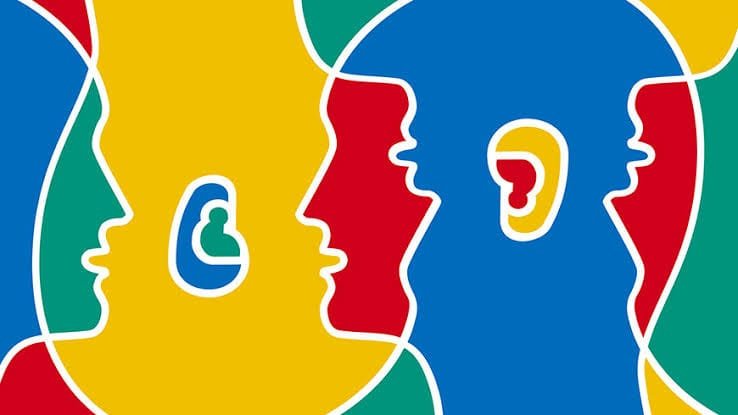European Day of Languages – September 26, 2022, history significance why we celebrate
The European Day of Languages (E.D.L.) is observed on September 26 annually. This day promotes awareness about language learning and protecting linguistic heritage. The overall purpose is to raise awareness of Europe’s rich linguistic and cultural diversity, which must be encouraged and preserved.
It also strives to broaden the spectrum of languages that people learn throughout their lives to improve plurilingualism and intercultural understanding. E.D.L. provides a chance to honor all of Europe’s languages, particularly those spoken less frequently and spoken by migrants.
The E.D.L. is part of the Language Policy Programme. The more significant part of the program is directed at national education authorities and practitioners in this field. This campaign aims to convince the general public of the importance of learning more than one language.
HISTORY OF EUROPEAN DAY OF LANGUAGES

In 1997, the idea of organizing a campaign to convince the general public of the importance of learning more languages was born. This idea arose at the conference on Language learning for a new Europe, which launched the Common European Framework of Reference for languages (C.E.F.R.) and the concept of plurilingualism.
On September 26, 2001, the first European Day of Languages took place and was the main event of the European Day of Languages campaign, which was organized jointly with the European Union. This event was a success, and the Committee of Ministers of the Council of Europe decided that this day would be celebrated annually every September 26.
Learning languages does not only mean communication. It also helps to develop tolerance and understanding between people from different linguistic and cultural backgrounds. The importance of plurilingualism has been highlighted by numerous awareness-raising initiatives and documents, such as “The celebration of linguistic diversity.”
The European Day of Languages is the perfect occasion to honor the dozens of languages spoken throughout Europe. This day’s primary purposes are to celebrate linguistic diversity in Europe, the plurilingualism of its citizens, and lifelong language learning and to promote its rich diversity by encouraging people to be open to different languages and cultures.
EUROPEAN DAY OF LANGUAGES TIMELINE
1800
Teaching Foreign Languages
Teaching foreign languages begins in the early 19th century.
1997
The Idea of Organizing a Campaign Arises
This campaign aims at convincing the general public of the importance of learning more languages.
2001
The First E.D.L. Takes Place
The first E.D.L. takes place on September 26.
2016
More Than One Hundred Events Are Recorded
Over 1,100 language awareness events are registered; most of them are organized by schools, colleges, and language and cultural institutes.
RECOMMEND STORIES
- Royal Challengers Bengaluru Clinch Maiden IPL Title with Thrilling 6-Run Win Over Punjab Kings
- Remembering Ratan Tata: A Visionary Leader and Compassionate Humanitarian
- National College Colors Day – September 2, 2024: history
- Bison-ten Yell Day – September 2, 2024: history, FAQs
- National Lazy Mom’s Day – September 6, 2024
HOW TO OBSERVE EUROPEAN DAY OF LANGUAGES
Learn a new language
Learning a new language is the ideal way to commemorate this day. If you’ve been putting off learning a new language, today is the day to start.
Attend a language festival
A wide range of initiatives are organized across Europe; the most famous festival is held in the Students’ Square in Belgrade.
Encourage and support language learning
You can share the experience you have gained after learning a new language. By doing this, you can encourage others to start learning a new language.
5 BENEFITS OF LEARNING A FOREIGN LANGUAGE
You can experience new cultures
Knowing a new language allows you to immerse yourself in a country’s culture much deeper.
You will get to know new people
The best part about learning a new language is communicating and exchanging ideas with people from various nations.
You can advance your career
Language abilities might give you a big leg up on the competition.
Learning a new language improves brain development
Speakers of two or more languages have stronger memory, critical thinking, problem-solving, focus, multitasking, and listening skills.
Boosts your confidence
Any language student can build confidence by admitting to making mistakes when learning a new language.
WHY EUROPEAN DAY OF LANGUAGES IS IMPORTANT
It is an opportunity to welcome all backgrounds
This day represents an opportunity to receive people from different languages. The purpose is that individuals of every heritage feel at home.
It is a day to motivate plurilingualism
Plurilingualism means the ability to use different languages. You can also achieve a degree of proficiency and professionalism.
Learning a language can be a personal development
Encouraging and facilitating lifelong linguistic skills is also a form of personal growth. Learning a new language is difficult, which may boost your confidence.








